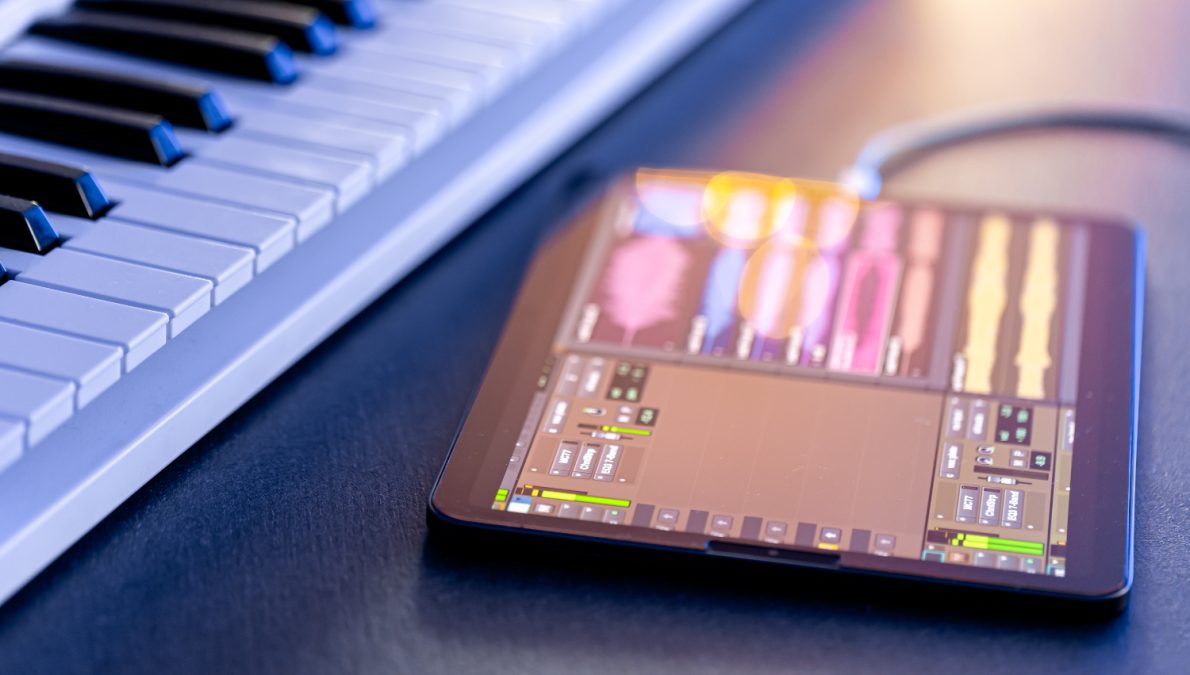Managing audio projects effectively is essential for music producers, sound engineers, and hobbyists alike. Track management software helps streamline workflows, organize tracks, and enhance the creative process. Whether you’re recording a live session, mixing multiple tracks, or producing a podcast, having the right tools can significantly improve efficiency and creativity. In this blog, we’ll explore the 10 best track management software for audio projects. Each entry includes detailed descriptions, pros, cons, pricing, and a link to learn more.
Page Contents
1. Pro Tools
Pro Tools by Avid is a gold standard in the audio industry, widely used by professionals for recording, editing, and mixing music or audio projects.
Features:
- Multi-track editing and mixing.
- Advanced MIDI editing capabilities.
- Cloud collaboration for team projects.
- Extensive plugin library for sound design.
Pros:
- Industry-leading tools for professional-grade projects.
- High compatibility with studio hardware.
- Powerful automation features.
- Regular updates and strong community support.
Cons:
- Steep learning curve for beginners.
- High subscription costs for premium plans.
Pricing:
- Pro Tools offers a free plan called Pro Tools Intro.
- Subscription plans start at $29.99/month for Pro Tools Artist.
- Pro Tools Ultimate is available at $79.99/month.
Learn More
2. Logic Pro
Logic Pro by Apple is a comprehensive digital audio workstation (DAW) ideal for musicians and producers looking for a robust yet user-friendly platform.
Features:
- Smart Tempo for timing adjustments.
- Extensive library of loops, samples, and virtual instruments.
- Integrated mixing and mastering tools.
- Dolby Atmos spatial audio support.
Pros:
- Seamless integration with macOS and Apple hardware.
- Intuitive interface suitable for all skill levels.
- One-time purchase with regular updates.
Cons:
- Mac-only software.
- Requires significant storage space.
Pricing:
- One-time purchase at $199.99.
3. Ableton Live
Ableton Live is renowned for its versatility in both music production and live performances.
Features:
- Session View for live composition.
- Advanced warping and time-stretching capabilities.
- Built-in instruments, effects, and sounds.
- Max for Live for custom device creation.
Pros:
- Perfect for electronic music producers and live performances.
- Highly customizable workflow.
- Regular updates and a strong user community.
Cons:
- Expensive compared to similar software.
- MIDI editing tools could be more robust.
Pricing:
- Intro version at $99.
- Standard version at $449.
- Suite version at $749.
4. Cubase
Cubase by Steinberg is a powerful DAW suited for music production, mixing, and mastering.
Features:
- Advanced chord tracking and MIDI editing.
- VariAudio for pitch correction.
- Comprehensive mixing console.
- Extensive plugin support.
Pros:
- Great for composers and sound designers.
- High-quality virtual instruments included.
- Excellent audio editing tools.
Cons:
- Interface can feel cluttered for new users.
- Expensive for beginners.
Pricing:
- Elements version at $99.99.
- Artist version at $329.99.
- Pro version at $579.99.
Learn More
5. FL Studio
FL Studio by Image-Line is a favorite among electronic music producers for its intuitive interface and extensive features.
Features:
- Step sequencer for quick beat creation.
- Wide array of virtual instruments and effects.
- Lifetime free updates.
- Mixer with automation and sidechain support.
Pros:
- Easy-to-learn interface for beginners.
- Excellent value with lifetime updates.
- Suitable for all music genres.
Cons:
- Limited audio recording capabilities.
- Some features require additional purchases.
Pricing:
- Fruity Edition at $99.
- Producer Edition at $199.
- Signature Bundle at $299.
6. Reaper
Reaper by Cockos is a cost-effective DAW with extensive customization options.
Features:
- Unlimited tracks with advanced routing.
- Customizable interface and scripting support.
- Wide format support for audio and MIDI.
- Portable installation option.
Pros:
- Lightweight and fast performance.
- Affordable pricing with full features.
- Excellent for both beginners and professionals.
Cons:
- Steeper learning curve for advanced features.
- Limited built-in instruments and effects.
Pricing:
- Discounted license at $60.
- Commercial license at $225.
7. Studio One
Studio One by PreSonus offers a modern approach to music production with its drag-and-drop interface.
Features:
- Arranger Track for easy song structuring.
- Scratch Pads for trying different ideas.
- Integrated mastering tools.
- Native integration with PreSonus hardware.
Pros:
- Innovative features like Scratch Pads.
- Great for songwriters and producers.
- Seamless workflow.
Cons:
- Some features locked behind higher tiers.
- Plugin management could be improved.
Pricing:
- Artist version at $99.95.
- Professional version at $399.95.
Learn More
8. Reason
Reason by Reason Studios is a unique DAW that emulates a virtual studio rack for creative sound design.
Features:
- Rack-based interface with modular routing.
- High-quality synthesizers and samplers.
- Comprehensive MIDI and audio editing tools.
- Integration with other DAWs as a plugin.
Pros:
- Unique modular workflow.
- Excellent for experimental sound design.
- Strong instrument library.
Cons:
- Interface can be intimidating for new users.
- Lacks some modern DAW features.
Pricing:
- Intro version at $99.
- Standard version at $399.
9. GarageBand
GarageBand by Apple is a beginner-friendly DAW perfect for hobbyists and new musicians.
Features:
- Preloaded instruments and loops.
- Multi-track recording and editing.
- Integration with Logic Pro for advanced features.
- Free for macOS and iOS users.
Pros:
- Free and easy to use.
- Great for beginners.
- Seamless integration with Apple devices.
Cons:
- Limited advanced features.
- Mac-only software.
Pricing:
- Free.
10. Audacity
Audacity is a free, open-source audio editing software widely used for basic recording and editing tasks.
Features:
- Multi-track audio editing.
- Wide range of effects and plugins.
- Cross-platform compatibility.
- Open-source with regular community updates.
Pros:
- Completely free.
- Lightweight and fast.
- Active user community for support.
Cons:
- Limited advanced features.
- Outdated interface.
Pricing:
- Free.
Whether you’re a seasoned professional or just starting your journey in audio production, these track management software options offer something for everyone. By evaluating the features, pros, cons, and pricing, you can choose the one that best fits your needs and take your audio projects to the next level.






